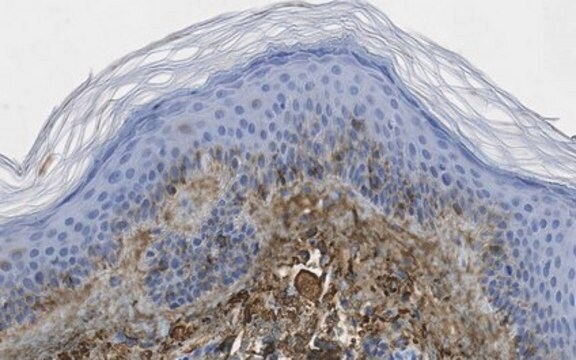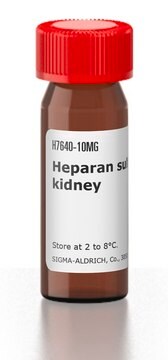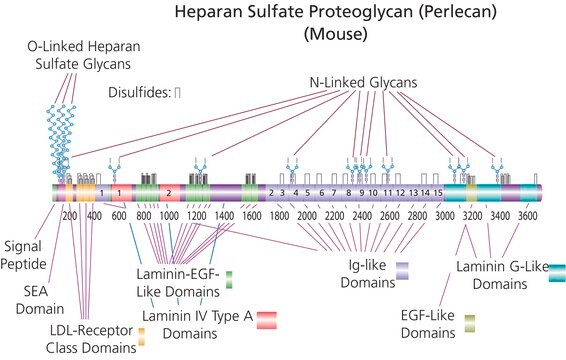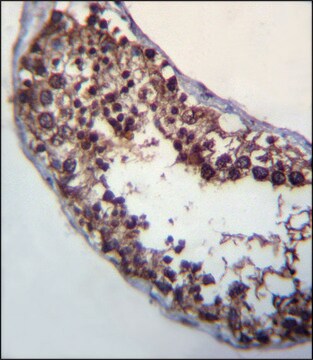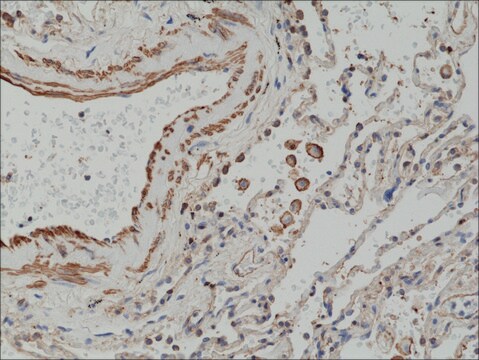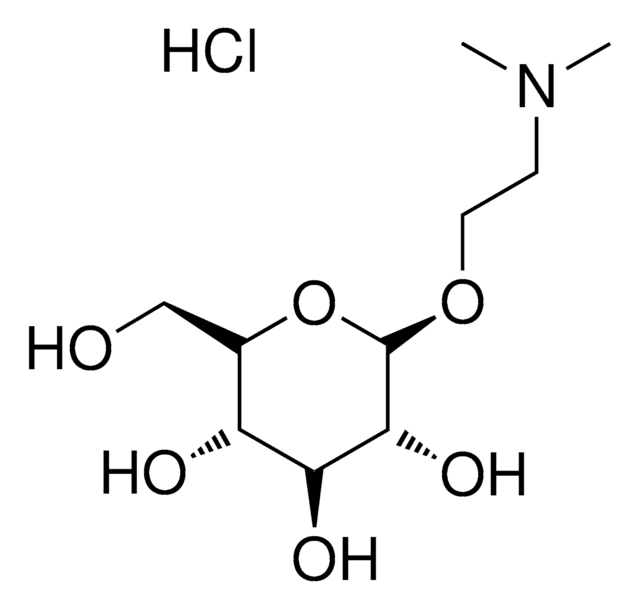MAB2022
Anti-Keratan Sulfate Antibody, clone EFG-11
ascites fluid, clone EFG-11, Chemicon®
About This Item
Produits recommandés
Source biologique
mouse
Niveau de qualité
Forme d'anticorps
ascites fluid
Clone
EFG-11, monoclonal
Espèces réactives
sheep, bovine, pig, canine, mouse, human
Fabricant/nom de marque
Chemicon®
Technique(s)
ELISA: suitable
radioimmunoassay: suitable
western blot: suitable
Isotype
IgG2b
Numéro d'accès NCBI
Numéro d'accès UniProt
Conditions d'expédition
dry ice
Modification post-traductionnelle de la cible
unmodified
Informations sur le gène
human ... LUM(4060)
Spécificité
Immunogène
Application
Cell Structure
Cytokeratins
ELISA at 1:5,000-1:20,000
RIA at 1:30,000-1:500,000
May be used in a competitive inhibition assay to measure keratan sulfate levels.
Forme physique
Stockage et stabilité
Informations légales
Clause de non-responsabilité
Code de la classe de stockage
10 - Combustible liquids
Classe de danger pour l'eau (WGK)
WGK 1
Point d'éclair (°F)
Not applicable
Point d'éclair (°C)
Not applicable
Certificats d'analyse (COA)
Recherchez un Certificats d'analyse (COA) en saisissant le numéro de lot du produit. Les numéros de lot figurent sur l'étiquette du produit après les mots "Lot" ou "Batch".
Déjà en possession de ce produit ?
Retrouvez la documentation relative aux produits que vous avez récemment achetés dans la Bibliothèque de documents.
Notre équipe de scientifiques dispose d'une expérience dans tous les secteurs de la recherche, notamment en sciences de la vie, science des matériaux, synthèse chimique, chromatographie, analyse et dans de nombreux autres domaines..
Contacter notre Service technique